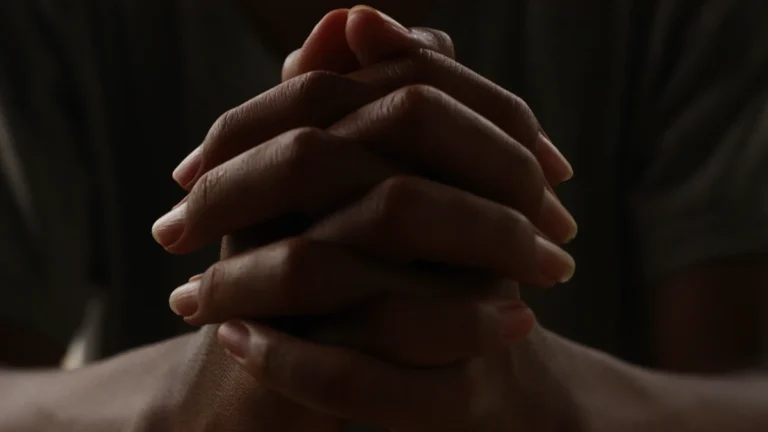From Billionaire Suites to Cat Videos: The Curse of Affluence
In 1991, I found myself on my second tour as a United Nations soldier in Syria, a dull enough occupation until I crossed paths with a man whose résumé casually included serving as bodyguard to certain members of the Saudi royal family. That was the sort of sentence that set my blood alight. I pressed him for names, for references, for any breadcrumb trail that might lead me to that glittering circus. As soon as my UN contract expired, I sent in my application. This, I told myself, was what I wanted to do.
I was still painfully young, and he reminded me of it. They preferred men with a bit more scar tissue, a thicker portfolio of experience. But fate occasionally enjoys mocking probability, and I received the call regardless: pack my things, fly to Cairo, and meet my new team leader. Destiny had rolled snake eyes and apparently, I was it.
Soon enough, I was one of many security men working for Prince Turki Bin Abdul Aziz—full brother to King Fahd, then monarch of Saudi Arabia, and King Salman, today’s custodian of the kingdom. For a 22-year-old, this was the jackpot, the absurd pinnacle of a provincial nobody’s ambitions.
This post first appeared in 2024, back when I still entertained hope that rational arguments might sway public sentiment. I’ve since remastered it—sharpened the edges, clarified the threat, and realigned it with the Grimwright ethos: use what works, discard the rest, and always—always—question the narrative. The date remains unchanged as a historical marker. The content does not.
And absurd it was. I rose quickly, absurdly quickly, and soon found myself boarding private jets the size of commercial airliners, dining on banquets that made medieval kings look like subsistence farmers, strolling through palaces that ordinary mortals only glimpse in Bond films, and cruising in limousines so long they made Manhattanites swivel their heads in open envy. Yes, technically, I was their servant—but proximity to such excess allowed me to sip their life like a connoisseur samples wine. Horseback rides across Arabian sands, driving a Hummer through one of the world’s largest metropolises back when a Hummer was a rare beast. I inhaled their billionaire oxygen, lived their 24/7 carnival, and discovered just how intoxicating—and suffocating—that air could be.
Such intimacy with the world’s plutocracy strips away their public masks. You stop being staff and start becoming furniture: always present, always overlooked. They forget to perform when you’re around, and what leaks out is far less flattering than the official version. What I saw gave me far more food for thought than I had bargained for.
I had naïvely imagined perpetual bliss, a nonstop carnival of ideas and adventures—the sort of life where the only constraint, money, has been exiled into irrelevance. And yes, I saw marvels. Astonishing cars purchased, joyridden once, then left to decay in private garages. Entire airplanes rented not for practicality but for spectacle—not slim executive jets but lumbering wide-bodies, commandeered like toys.
But beneath the platinum polish lurked rot. The big life had a hollow side. Their demeanor was stale, dull, unimaginative—as if unlimited wealth had drained their marrow.
The Prince himself, my principal, rarely ventured beyond his suite. He spent his days before the television, occasionally dealing cards with friends. Entire months passed without his leaving those two gilded rooms. This was the grandest suite the hotel offered, and yet smaller than my modest apartment in Vienna today. He was kind, yes, and I respected him deeply—but I pitied him too. Here was a man atop the world, and still he lived like a shadow: a prisoner in a cage, albeit one lined in gold leaf.
Was it the man, or was it the money?
When the first Indiana Jones film arrived, I was twelve. It struck me like lightning: everything I loved in one wild package. An educated man armed with wit, fists, and bullwhip, striding through ruins and danger.
Of course, I wasn’t stupid. I knew Hollywood embroidered his world to absurdity, and that the colonial epoch of swashbuckling archaeologists had ended long before I was born. Still, I swore adventure would be mine. Freedom was the great theme of my inner constitution, and I equated freedom with competence—being able to do what needed doing without groveling for help.
So I learned early to wash my own clothes, iron shirts, cook meals, fix things before they broke. Independence as a religion.
Indiana Jones merely fertilized the ground already seeded by my father’s stories. He wasn’t an archaeologist but he was an adventurer of sorts. He’d seen the world, carried back tales, and infected me with the virus.
I knew I could never be Indiana Jones. He was Dr. Jones, an academic, a product of an empire’s sprawling frontier. I was no scholar, and the world I inherited was both too organized and too claustrophobic for such chaos. Yet despite differences, one truth remained timeless: true freedom dwells in simplicity. The less you carry, the further you can roam across this indifferent rock.
Which is why I shunned many trappings of my peers. No car, no chains. I had glimpsed the gilded life of billionaires, and I knew better. I’ve seen both ends of the spectrum over my 55 years, and I still preferred Jones—the modestly resourced, peril-seeking scholar—over the listless oil prince with infinite credit.
Wealth dulls the senses. The good life turns us flabby, anesthetizes our imagination. Hence the endless hunger for new distractions: external fireworks because nothing sparks within. Dostoyevsky, that old Russian gambler, confessed he needed ruin to stir his creativity. He squandered fortunes at the card table to taste poverty’s lash again. That was his drug.
German has a word for this decay: Wohlstandsverwahrlosung. Translated loosely as “affluent neglect” or “affluent depravity,” it’s the condition of being smothered by comfort. When every basic need is met, you are free to waste your existence scrolling through cat videos instead of wrestling with your supposed passions. Time doesn’t care—it passes whether you squander it or not. And one day you wake up to find the richest portion of life has been frittered away, leaving no ledger entries worth remembering.
Goethe’s Faust offers the parable: Dr. Faustus trades his soul to Mephisto for godlike powers, then squanders them in distraction until it’s too late. Full of plans and intentions, he does nothing meaningful. Omnipotence wasted. And so it goes with us: grand dreams deferred by procrastination, delayed by cowardly concern for what “others might think.” Safer to watch another cat video than risk ridicule.
Comfort sedates rebellion. Few breach the walls of acceptability. Ironically, the absence of wealth often provokes more daring than its abundance.
Don’t mistake me: I am not romanticizing destitution. Poverty cripples. But in the developed world, most needn’t starve. Simplicity and humility equip you to rise from almost any pit. They are better allies than riches.
But what about us collectively? Look around and answer honestly: when was the last time you felt society truly addressed anything that mattered—transport, energy, food that nourishes instead of poisons, public safety? Instead, we fuss over gendering national anthems and introducing avant-garde kinks to kindergarten curricula.
We are rich, fat, and lazy. We sit on padded chairs, complain endlessly, and lift no hand to repair the rot. Because we can. Because we can afford indifference. Because nothing seems urgent until it is.
And so, as I’ve written before, history marches on. Wealth breeds apathy, apathy breeds extremity, and soon the lunatics steer the ship into the rocks. The tide cannot be halted, but our reactions can be sharpened. We can prepare, build resilience, and above all, ask ourselves the one haunting question: how much life remains, and have I tasted any fragment of the childhood dream before the curtain falls?
I’ve asked myself this often. The answer drove me to simplification: pruning what does not matter, discarding others’ unreasonable expectations, silencing the hamster wheel of status games. Those games never satisfy. They torment in solitude, when distractions fade and the inner voice whispers truths you try to drown. You can scroll away the silence for a while, but repression hollows you out, leaves a hole nothing can fill.
Legend tells of Alexander the Great meeting Diogenes the Cynic. Alexander, master of empires, offered to grant any wish. Diogenes, living in his barrel, told him to step aside—he was blocking the sun. And Alexander, one of history’s icons, admitted he envied the beggar philosopher.
We needn’t become barrel-dwellers, but simplicity has its majesty. Wealth enslaves with invisible chains. We pretend to guard treasure when all we truly risk losing is time itself—the only currency that counts, the only certainty we waste until the final audit.
Think of Rocky. The young contender had the “eye of the tiger.” The champion, softened by luxury, had lost it. The whole saga was about clawing it back.
So I ask: how Rocky are you?




